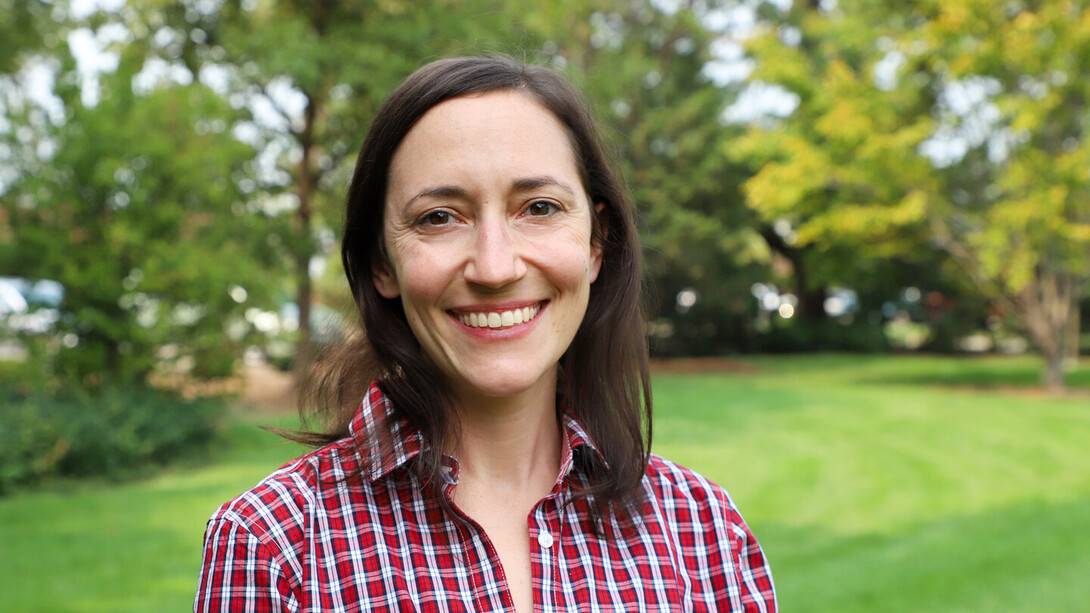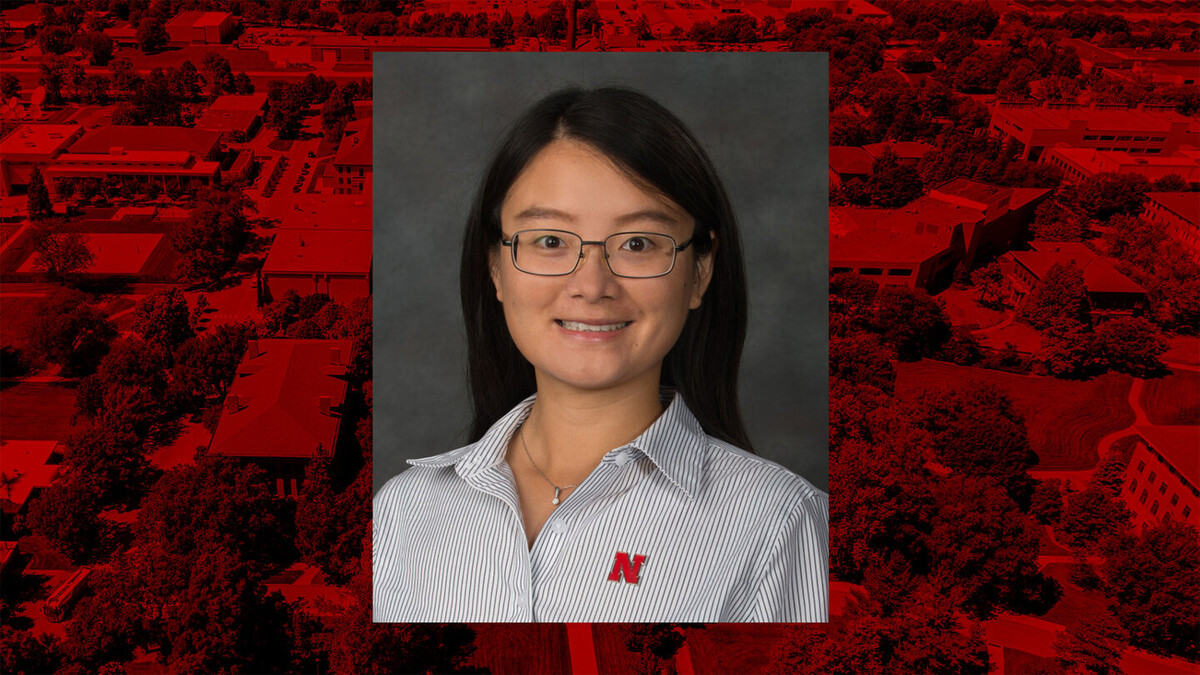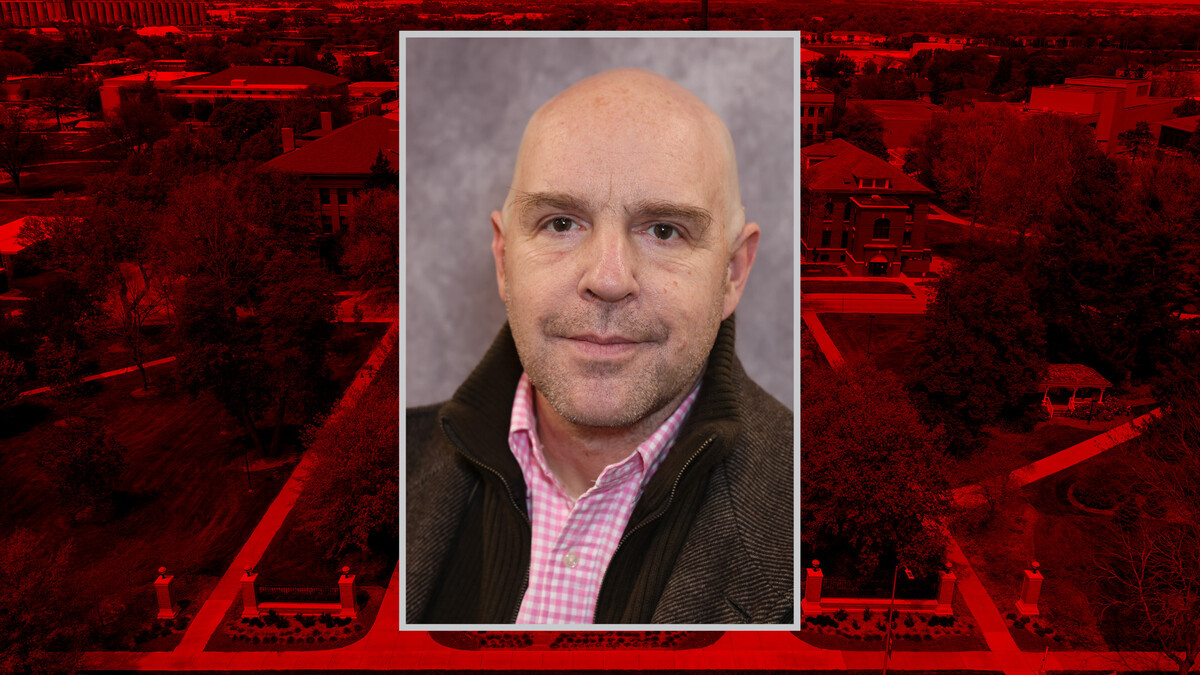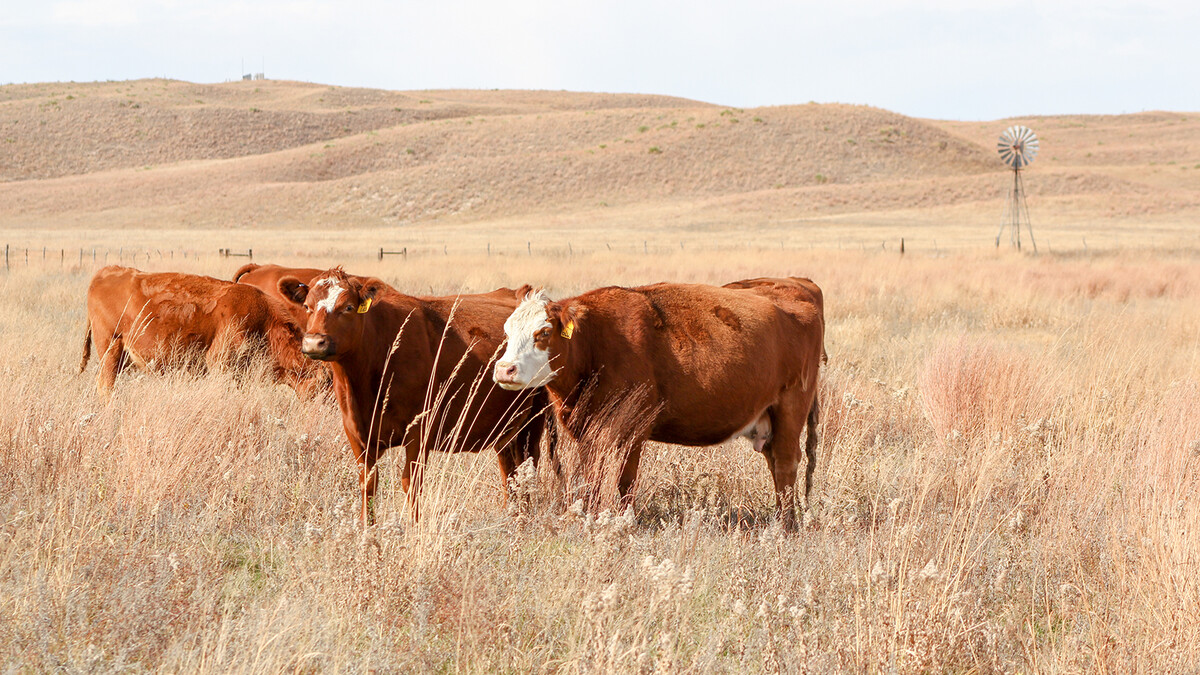
Andrea Basche, associate professor in cropping systems, received the Holling Family Every Person and Every Interaction Matters: Faculty Impact Award during a luncheon May 9 on East Campus. This award recognizes the embodiment of exceptional and impactful teaching in the College of Agricultural Sciences and Natural Resources.
Basche’s appointment in the Department of Agronomy and Horticulture is 60% teaching and 40% research. Her teaching responsibilities include two courses core to the agronomy major — Plant and Landscape Systems 204 Resource Efficient Crop Management; and PLAS 405 Crop Management Strategies.
PLAS 405 is an important capstone course for seniors majoring in agronomy. Students apply their learnings and experiences to support the development of management plans for farmers who participate in the course. In 2019, students worked with women landowners and tenants collaboratively planning conservation efforts through a North Central Sustainable Agriculture Research and Education partnership grant Basche secured. Since 2020, through Basche’s partnerships, the course has been collaborating with the Lewis and Clark Natural Resources District in Hartington, Nebraska, supporting a watershed project intended to advance crop management that can improve water quality. These partnerships have offset the costs of travel for over 150 students during this seven-year period.
“Andrea secured funding through NCR-SARE for a project titled, “Partnering in Conservation: Engaging Women Farmland Owners and Their Tenants in Collaborative Conservation Planning,” where women landowners and their tenants served as the farm clients for the students’ capstone projects,” said Sam Wortman, agronomy and horticulture associate professor. “This was a valuable learning exercise for our predominantly male undergraduate students in the agronomy major, and one that is increasingly relevant as the number of women farmers and landowners is increasing in the U.S.”
In 2017 Basche co-developed the first cover crop management course — PLAS 425/AGRO 825 Cover Crops in Agroecosystems — with Wortman and faculty at six other land grant universities.
During the pandemic shift, Basche created a mini-session course titled “Exploring the Culture of Agriculture.” The course introduced students to historical perspectives in agriculture, highlighting the experiences and contributions of various community members throughout Nebraska. End-of-semester surveys showed that nearly all students felt they had gained a deeper understanding of challenges and fairness in agriculture, and that they had already taken or planned to take further steps — such as continued learning, discussions or action — on related topics in agriculture and natural resources as a result of the course.
“Andrea recognizes that excelling in teaching is not a destination, but an ongoing process and as a result, she continually seeks opportunity to improve her teaching,” said Bijesh Maharjan, associate professor of agronomy and horticulture. “She shows great initiative to present to her peers about her teaching and mentoring, featuring her approaches and examples from her curriculum that engage a wide range of learners.”
Basche also strives to engage with a broad range of individuals and groups through her outreach and research to support their goals. This includes Community Crops, a Lincoln-based non-profit that supports local food, beginning farmers and woman landowners, an overlooked group in agriculture.
Basche leads and mentors an exceptionally talented team of graduate students and post-doctoral associates.
“Andrea has demonstrated commitment to . . . the teams she has built, her approach to teaching and learning in new and existing courses, and in her daily personal and professional interactions," Wortman said.
“Dr. Basche has had a profound impact on my personal and academic development, particularly as a woman navigating the male-dominated field of agronomy,” said Charlotte Brockman, agronomy major who graduated in 2025. “Through her unwavering encouragement, she has emboldened me to find my voice, speak up and make meaningful contributions in spaces where women are often underrepresented. Her mentorship has shaped my confidence, leadership skills and vision for my future in agricultural sciences.”
Basche and her team of researchers study several aspects of diversified cropping systems, including carbon and nitrogen cycling, water and weed dynamics, as well as policy and human decision-making. They are currently part of a large collaborative effort to study the management and supply chain efforts for a perennial grain crop called Kernza®.
Basche is a nationally recognized leader on cover crops, soil health and climate change, and has delivered over 80 invited presentations and interviews to a range of audiences — from NPR’s “Science Friday” and BBC’s “Future” to “Ag PhD” Radio.
Basche received the American Society of Agronomy Environmental Quality Section Inspiring Early Career Scientist Award, presented by the Environmental Quality Community in 2024. In 2023, she received the Dinsdale Family Faculty Award. She was recognized by the American Society of Agronomy with the 2022 Early Career Award. She also served as a co-author on the Northern Great Plains Chapter of the 5th National Climate Assessment.
She has been an active member of the Tri-Societies — ASA, Crop Science Society of America and Soil Science Society of America — for over 13 years, including serving as an associate editor of Agronomy Journal and a member of the CSSA policy committee.
“This award is meaningful to me because it’s a recognition of the values I try to practice every day in my work,” Basche said. “My research team and I strive to do our work by treating others with kindness, respect and empathy while practicing transparency and curiosity. Further, my goal is to create a classroom environment that supports all students and the needed diversity of voices and perspectives that will help solve agricultural challenges. I appreciate that this award recognizes values how our work is done.”
More about Basche and her team can be found in the Resilient Cropping Systems Lab.







